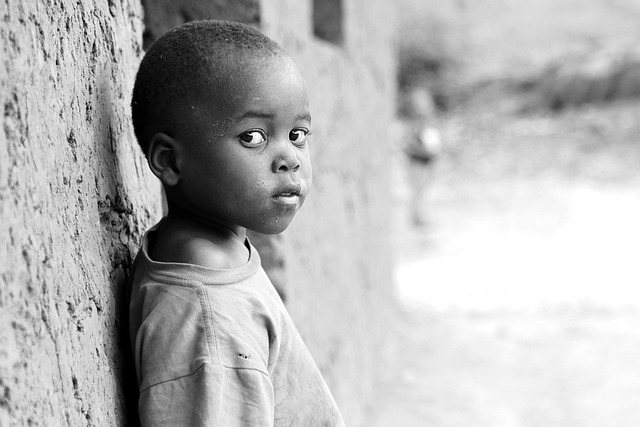Child advocacy programs and child welfare services are vital for creating safe, nurturing environments that promote holistic growth. These initiatives focus on protecting children's rights by addressing barriers to progress and fostering healthy family dynamics. They offer direct assistance to vulnerable youth through legal advocacy, ensuring their education rights and well-being in juvenile justice systems. By collaborating with communities, organizations, and governments, these programs aim to prevent child abuse, neglect, and exploitation, ultimately nurturing every child's potential while safeguarding their rights at all levels.
Fostering safe and nurturing environments is paramount for a child’s healthy growth and development. This article explores critical components essential to achieving this goal, including the role of child advocacy programs in protecting rights and promoting well-being. We delve into juvenile legal advocacy efforts to ensure justice for vulnerable youth and examine strategies aimed at preventing child abuse while supporting education rights. By examining these key areas, we aim to illuminate paths towards enhancing child welfare services and nurturing a brighter future for our youngest members.
Understanding the Importance of Safe Environments for Children's Growth
Creating safe and nurturing environments is paramount for a child’s holistic growth and development. Children who grow up in secure settings are more likely to thrive academically, socially, and emotionally. Child advocacy programs and welfare services play a pivotal role in ensuring children’s rights are protected, fostering their well-being, and preventing potential abuse or neglect. These initiatives focus on providing support for vulnerable children, addressing issues that may hinder their progress, and promoting healthy family dynamics.
By implementing strategies to safeguard children, we empower them to reach their full potential. This involves enhancing access to quality education, which is a fundamental right, and ensuring they receive the necessary legal advocacy to navigate juvenile justice systems. Protecting children’s rights and fostering their development is a collective responsibility, requiring communities, organizations, and governments to collaborate in creating environments that nurture, support, and keep children safe.
Child Advocacy Programs: Protecting Rights and Promoting Development
Child Advocacy Programs play a pivotal role in protecting children’s rights and promoting their holistic development. These initiatives are designed to ensure that every child, regardless of their background or circumstances, has access to safe spaces where they can grow, learn, and thrive. By leveraging partnerships between government agencies, non-profits, and communities, these programs address various aspects of child welfare services, including prevention strategies for child abuse, neglect, and exploitation. They also offer direct support to vulnerable children, providing legal advocacy through juvenile legal services that safeguard their education rights and overall well-being.
Through comprehensive approaches that involve education, awareness campaigns, and intervention services, child advocacy programs foster environments nurturing physical, emotional, and cognitive development. They empower both children and adults by equipping them with knowledge and skills to identify potential risks and take proactive measures in safeguarding children’s futures. By fostering collaboration among stakeholders, these initiatives ensure that every effort is made to protect children’s rights, provide support for vulnerable children, and ultimately, build a society where every young mind can reach its full potential.
Juvenile Legal Advocacy: Ensuring Safety and Justice for Vulnerable Youth
Juvenile Legal Advocacy plays a pivotal role in safeguarding and upholding the rights of vulnerable youth, especially those entangled in the legal system due to alleged misconduct or neglect. Child advocacy programs focused on juvenile legal matters strive to ensure that children’s voices are heard and their best interests are prioritized during legal proceedings. These initiatives aim to protect children’s rights, foster child development, and prevent child abuse by ensuring just and fair treatment within the justice system.
By implementing robust child welfare services, these advocacy groups provide much-needed support for vulnerable children. They offer legal representation, guidance, and resources to navigate complex legal processes, ensuring that their educational rights and overall well-being are not compromised. Through dedicated juvenile legal advocacy, communities can create a safer environment where children are protected, their rights respected, and their potential nurtured.
Strategies to Prevent Child Abuse and Support Education Rights
Creating safe and nurturing environments for children involves a multifaceted approach that includes both proactive measures to prevent abuse and targeted support for their educational and emotional development. Child advocacy programs play a crucial role in this, focusing on raising awareness about child welfare services and protecting children’s rights. These initiatives often involve community engagement, parental education, and collaboration with local authorities to ensure that all children have access to essential resources.
Supporting vulnerable children through juvenile legal advocacy is another critical aspect. This involves ensuring that their voices are heard in legal proceedings and that they receive the necessary support to navigate complex systems. By fostering child development and prioritizing their safety, these programs not only prevent child abuse but also empower young individuals to thrive. This holistic approach leverages partnerships with schools, healthcare providers, and social services to create a comprehensive safety net for children, guaranteeing their education rights and overall well-being.
Fostering safe and nurturing environments is paramount for a child’s holistic development. By implementing robust child advocacy programs, protecting children’s rights, and prioritizing their education, we can prevent abusive situations and ensure justice for vulnerable youth. Juvenile legal advocacy plays a crucial role in safeguarding their well-being, while strategies focused on abuse prevention empower communities to create supportive landscapes where every child feels secure and empowered to reach their potential. Child welfare services must remain vigilant, leveraging resources effectively to nurture growth and mitigate risks, ultimately shaping a brighter future for our youngest members.
